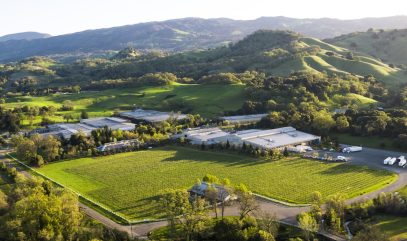Sustainable Beer: Conclusion (Post 4 of 4)
Both Hopworks Urban Brewery and The Grain Shed are reacting to a growing demand for conscious brands in the craft beer market, and within the geographical areas they serve. Early research indicates that more sustainable brands are outpacing their conventional counterparts in this competitive space.
Hopworks Urban Brewery has more than doubled its growth since 2013 and is now in its second year and second collaboration with Patagonia and the Land Institute. The beer is extremely popular not only among the eco-conscious consumer in Portland but throughout the larger region, especially among outdoor enthusiasts who share the same values of Patagonia: “Build the best product, cause no unnecessary harm, use business to inspire and implement solutions to the environmental crises.”
The Grain Shed’s model creates resiliency in the local economy while supporting environmental best practices. The purchase of grains locally means that transportation is minimized resulting in fewer carbon emissions than does the relationship between conventionally grown grain and large-scale commercial breweries. And by having a guaranteed buyer for his grain, the grower is able to invest in the longer-term benefits of landrace grains that creates positive environmental, economic, and social benefit to the people impacted by this system. The environmental impacts mean less water use, no toxic chemicals, soil conservation, carbon sequestration, and biodiversity.
The Grain Shed’s practices of worker-ownership and local supplier preference create a more resilient local economy by paying higher wages and supporting local markets. The positive social impacts mean better nutrition, tastier beers, and a stronger community. This latter benefit of community is best summed up by The Grain Shed’s own messaging:
“Brewer, Baker, Social-Bond Maker – The grain grown on this land was once the lifeblood of our community. We're a brewery & bakery bringing neighbors together to break bread, drink beer and rebuild what we've lost.”
These two breweries exemplify the increasing trends in Sustainability within the beer industry and stand as examples of businesses using their resources to create a more sustainable, environmentally resilient local economy.
Read Part 1 – Sustainable Beer: Two Examples from the Craft Beer Industry (Post 1 of 4)
Read Part 2 - Case Study #1: Water Conservation and Hopworks Urban Brewery (Post 2 of 4)
Read Part 3 - Case Study #2: Landrace Grains and The Grain Shed (Post 3 of 4)
Read More
B Corps Take Climate Justice Seriously
When B Lab launched the Climate Justice Playbook for business, the B Corp community was excited. Companies understood the principles, and wanted more examples of companies implementing climate justice initiatives. The id
Case for B Corp: A Primer (Part 1)
There is strong consumer demand for products produced by companies they deem to be responsible and focused on social and environmental sustainability. In many cases, consumers will pay more for those products. Employees
Case for B Corp: It matters (Part 10)
We know that the climate is changing – 97 percent of scientists agree. While social problems are not new and have been transparent to many people, Covid-19 and racial justice protests shine a bright light on the challeng
Case for B Corp: Business Risks and Mitigations (Part 9)
Risk exists in every decision we make and every action we take as individuals. There are few things in life that don’t carry some risk. Businesses are no different – they face risks every day. And while becoming a B Corp




